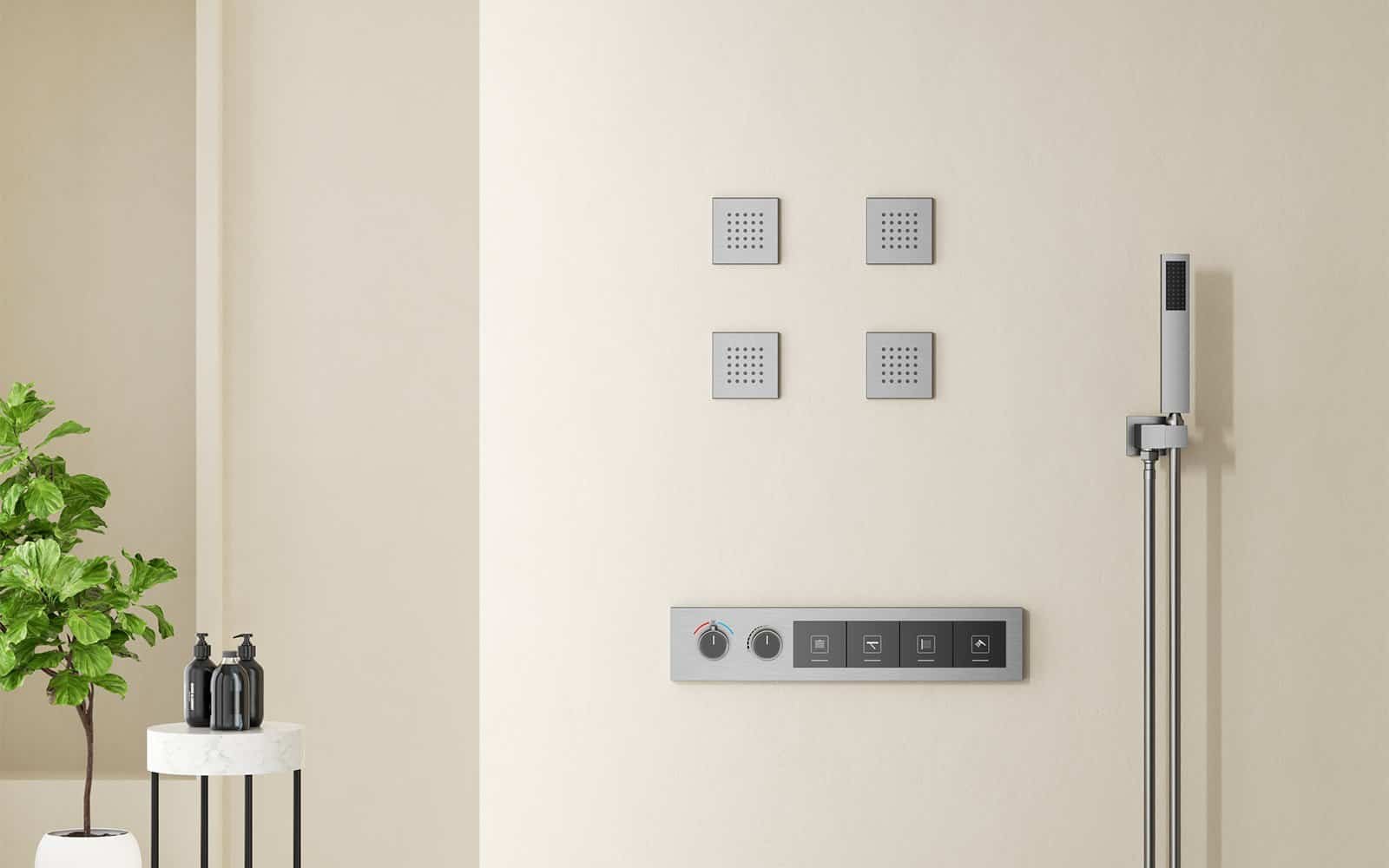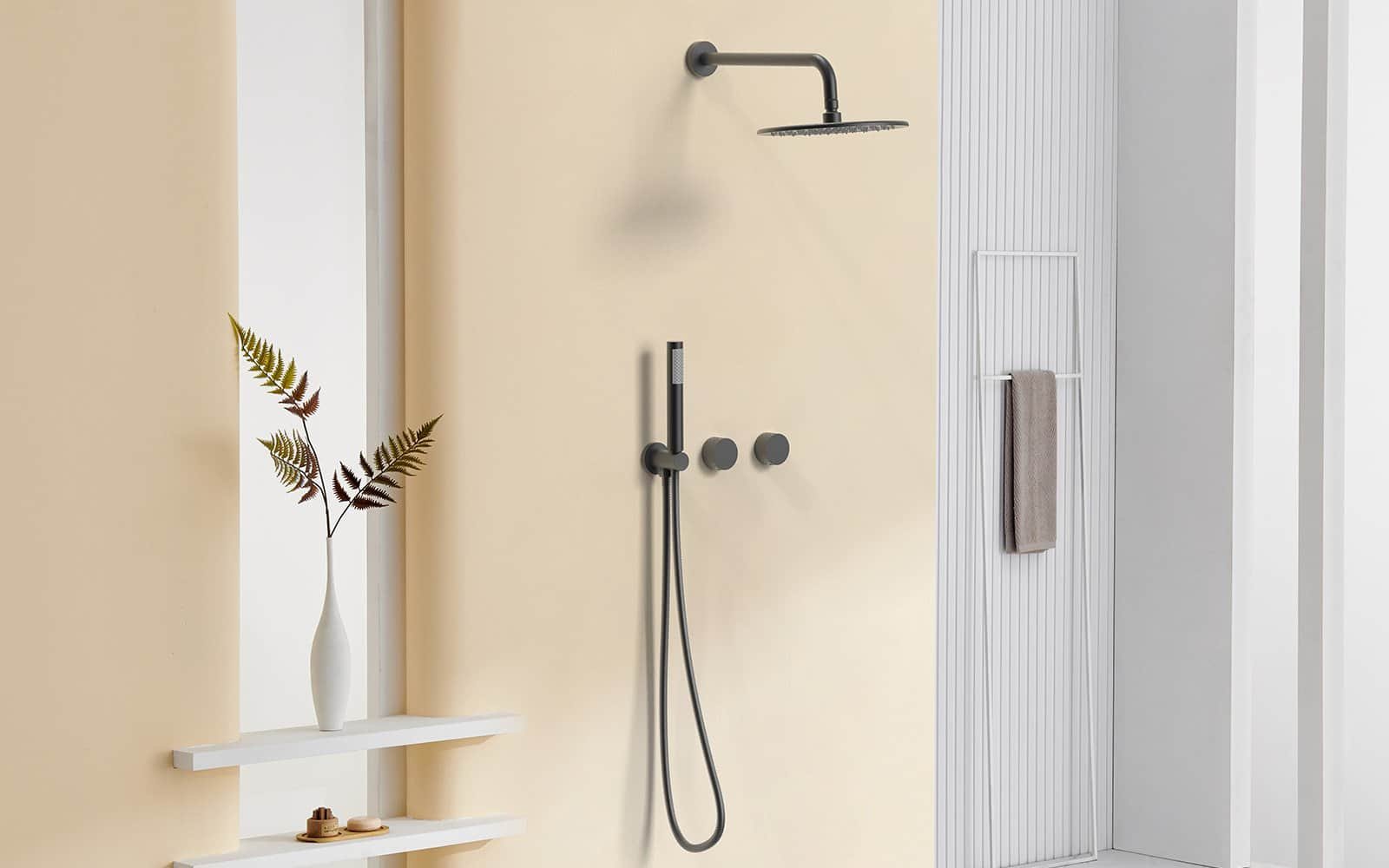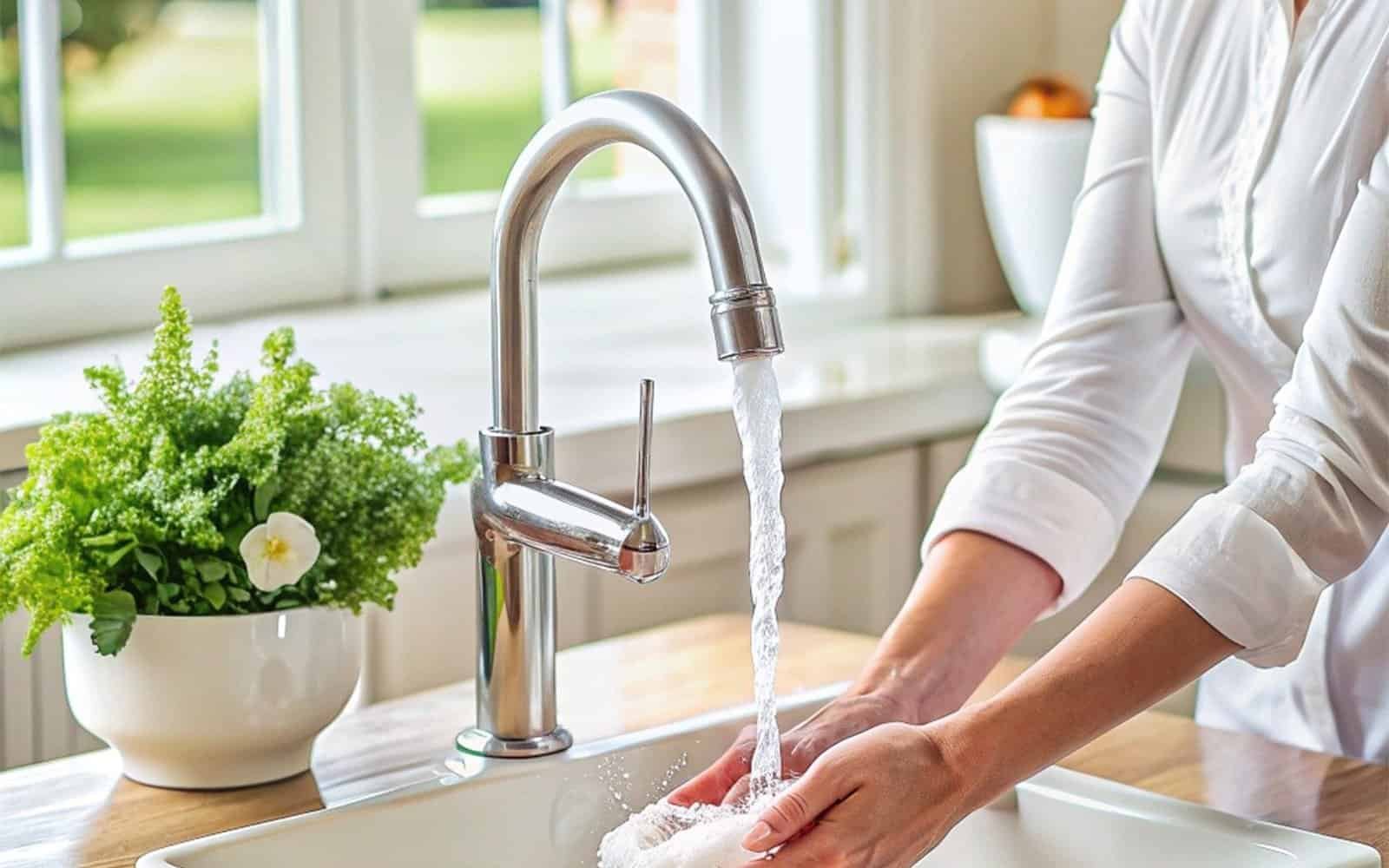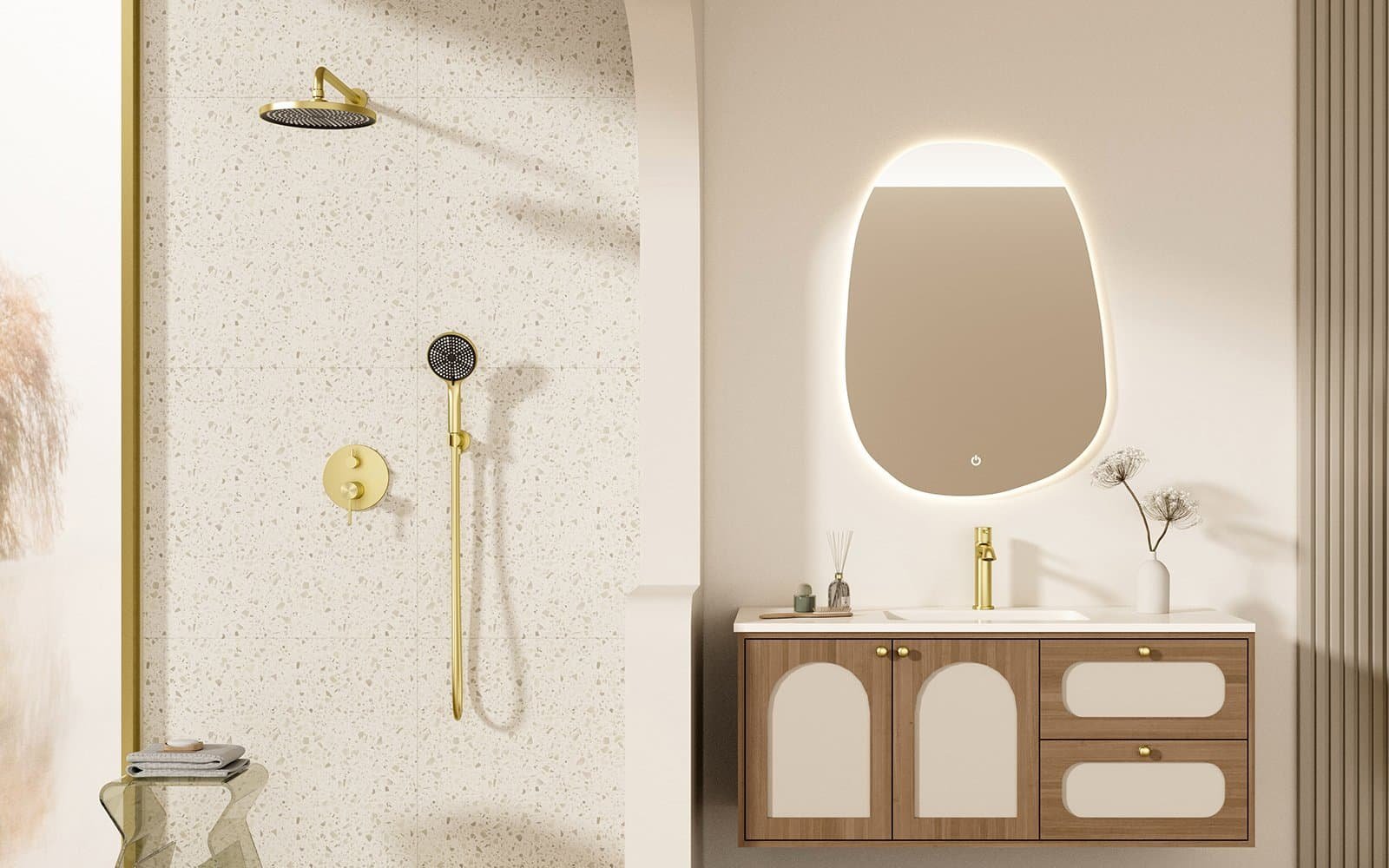Table of Content

When designing or remodeling a bathroom, choosing the right material for your shower system» is key. The material affects the look, durability, maintenance, and ability to handle moisture and use.
In this article, we’ll explore durable shower materials, focusing on water resistance, maintenance, cost, and longevity.
Introduction: Importance of Choosing the Right Material for a Durable Shower System
A durable shower system ensures long-term functionality and reduces the need for frequent repairs or replacements. Choosing materials that resist moisture, wear, and maintain their look is crucial. The right shower material can save time and money while boosting property value. The right material can also influence the overall experience in the shower, from comfort to safety.
Factors to Consider in Durability
Several factors influence the durability of a shower system. These include:
- Water Resistance: The primary function of a shower system is to handle water exposure. Therefore, the material must be impervious or highly resistant to water to avoid degradation over time.
- Maintenance: Materials that require minimal cleaning and can resist mold or mildew are more likely to last longer.
- Aesthetic Longevity: Some materials stay looking new for years, while others may discolor, chip, or age.
- Cost and Longevity: Durable materials cost more initially but save money over time.
Types of Shower Systems
Different types of shower systems can affect which materials are most suitable. These include:
For more detailed information, please visit this post : Learn the Types of Shower Systems »
- Single-Handle Shower System
- Dual-Handle Shower System
- Thermostatic Shower System
- Pressure-Balancing Shower System
- Digital Shower System
- Shower Tower
| Type | Description | Benefits |
|---|---|---|
| Single-Handle | One lever controls flow and temperature | Convenient and easy to adjust |
| Dual-Handle | Separate handles for hot and cold | Precise control over settings |
| Thermostatic | Maintains consistent temperature | Enhanced safety against temperature changes |
| Pressure-Balancing | Adjusts pressure to maintain steady temperature | Prevents scalding or freezing shocks |
| Digital | Electronic controls for settings | Programmable presets for customization |
| Shower tower | Luxurious experience with streamlined setup |
Types of Shower System Materials

Shower valve controls
Brass
- Durability: Brass is renowned for its strength and longevity.
- Corrosion Resistance: It resists corrosion from water and is less likely to develop leaks over time.
- Heat Tolerance: Brass handles high temperatures well, making it suitable for hot water systems.
- Price Point: Generally more expensive because of its superior qualities
Stainless Steel
- Strength: Offers robust durability similar to brass.
- Corrosion Resistance: Highly resistant to rust and corrosion.
- Aesthetics: Provides a sleek, modern look.
- Maintenance: Easy to clean and maintain.
Plastic (PVC or ABS)
- Cost-effectiveness: Plastic valves are cost-effective.
- Corrosion Resistance: Immune to rust and corrosion.
- Lightweight: Easier to install because of their lighter weight.
- Durability: Less durable than metal counterparts and may wear out faster.
Ceramic Components
- Innovation: Made from a combination of materials to enhance specific properties.
- Corrosion Resistance: Designed to resist corrosion effectively.
- Weight: Typically lighter than metal valves.
- Usage: They serve specialized applications that require specific properties.

Types of shower head material
Shower heads come in various materials, each offering different benefits for durability, appearance, and maintenance. Understanding these materials can help you choose a shower head that best suits your needs
Brass
- Durability: Brass is highly durable and resistant to corrosion.
- Aesthetics: Offers a classic, premium look.
- Maintenance: Easy to clean and maintain.
- Price Point: Generally more expensive due to its quality.
Stainless Steel
- Strength: Known for its robustness and longevity.
- Corrosion Resistance: Highly resistant to rust and tarnish.
- Aesthetics: Provides a sleek, modern appearance.
- Maintenance: Low-maintenance and easy to clean.
Plastic (ABS plastic)
- Affordability: More budget-friendly than metal options.
- Lightweight: Easier to install due to its lighter weight.
- Variety: Available in numerous styles and finishes, often mimicking metal.
- Durability: Less durable than metal; may be prone to cracking over time.
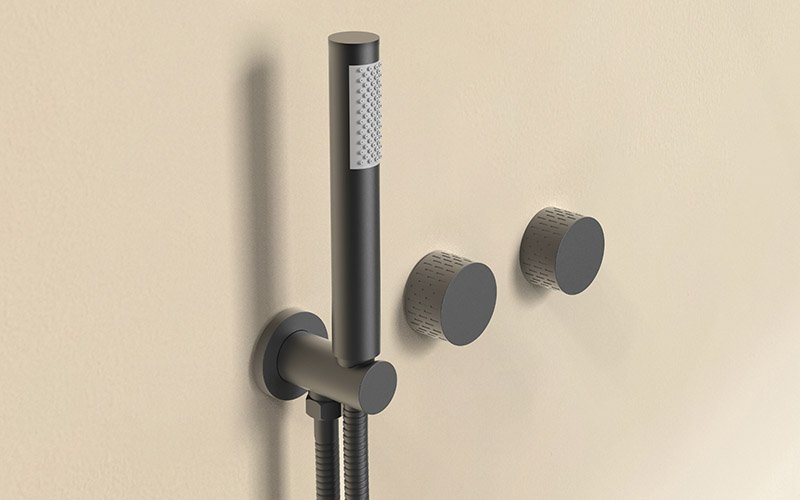
Types of hand shower material
Hand showers offer flexibility by letting you direct the water flow where needed. The material of a hand shower influences its durability, weight, aesthetics, and maintenance requirements
Brass
- Durability: Brass is highly durable and resistant to corrosion, making it ideal for long-term use.
- Aesthetics: Offers a classic and premium look that complements various bathroom styles.
- Maintenance: Easy to clean and maintain its shine over time.
- Weight: Heavier than other materials, which can affect ease of use.
- Price Point: Generally more expensive due to its superior quality.
Stainless Steel
- Strength: Known for robustness and resistance to dents and scratches.
- Corrosion Resistance: Highly resistant to rust and tarnish, even in humid environments.
- Aesthetics: Provides a sleek, modern appearance.
- Maintenance: Low-maintenance and easy to clean.
- Weight: Can be heavier than plastic options.
Plastic (ABS plastic)
- Affordability: More budget-friendly compared to metal options.
- Lightweight: Easy to handle, especially beneficial for children or the elderly.
- Variety: Available in numerous styles and finishes, often designed to mimic metal.
- Durability: Less durable than metal; may crack or wear over time.
- Heat Resistance: May not withstand high temperatures as well as metal counterparts.
Types of Tub Spout material
Tub spouts are essential fixtures in a bathroom, delivering water from the plumbing system into the bathtub. The material of a tub spout impacts its durability, appearance, and ability to handle daily use and water exposure.
- Brass
- Stainless Steel
Types of body jets material
Brass
- Durability: Brass is highly durable and resistant to corrosion, making it ideal for long-term use in wet environments.
- Aesthetics: Offers a premium, classic look that can enhance the luxury feel of your shower.
- Maintenance: Easy to clean and maintains its appearance over time.
- Weight: Heavier than other materials, which can contribute to a solid, high-quality feel.
- Price Point: Generally more expensive because of its superior quality.
Stainless Steel
- Strength: Known for robustness and longevity.
- Corrosion Resistance: Highly resistant to rust and tarnish, suitable for moist environments.
- Aesthetics: Provides a sleek, modern appearance that fits well with contemporary designs.
- Maintenance: Low-maintenance and easy to clean.
- Price Point: Offers a good balance between cost and durability.
Plastic (ABS Plastic)
- Affordability: More budget-friendly compared to metal options.
- Lightweight: Easier to install and handle due to its lighter weight.
- Variety: Available in various styles and finishes, often designed to mimic metal.
- Durability: Less durable than metal; may crack or discolor over time.
- Heat Resistance: May not withstand high temperatures as well as metal counterparts.
Zinc Alloy
- Cost-Effective: A cheaper alternative to brass and stainless steel.
- Workability: Easily molded into intricate designs, allowing for a variety of styles.
- Durability: Less resistant to corrosion and may not last as long as higher-quality metals.
- Aesthetics: Often plated with chrome or other finishes to enhance appearance.
- Usage: Common in budget-friendly fixtures.
types of shower pipes and fittings material
Selecting the appropriate material for your shower pipes and fittings is crucial for a reliable and efficient plumbing system. Copper and PEX are popular for their durability, while CPVC balances cost and functionality.
Copper
- Types:
- Type K: Thickest walls; used for underground or heavy-duty applications.
- Type L: Medium thickness; commonly used for interior plumbing.
- Type M: Thinnest walls; used for low-pressure applications.
- Advantages:
- Durability: Long lifespan and highly resistant to corrosion.
- Antimicrobial Properties: Naturally inhibits bacterial growth.
- Heat Resistance: Handles high temperatures well.
- Disadvantages:
- Cost: More expensive than plastic alternatives.
- Installation: Requires soldering or specialized fittings, needing professional expertise.
PEX (Cross-linked Polyethylene)
- Advantages:
- Flexibility: Can bend around corners, reducing the need for fittings.
- Ease of Installation: Quick to install with crimp or push-fit fittings.
- Cost-Effective: Generally cheaper than copper.
- Resistance: Resists corrosion, scale buildup, and chlorine.
- Disadvantages:
- UV Sensitivity: Degrades if exposed to sunlight; not suitable for outdoor use.
- Temperature Limits: While suitable for hot water, extreme temperatures can affect integrity.
- Chemical Sensitivity: May be susceptible to damage from certain chemicals or solvents.
CPVC (Chlorinated Polyvinyl Chloride)
- Advantages:
- Heat Resistance: Suitable for both hot and cold water lines.
- Corrosion Resistance: Does not corrode, pit, or scale.
- Cost-Effective: Less expensive than copper and suitable for DIY projects.
- Disadvantages:
- Brittleness: More brittle than PEX; can crack if mishandled or stressed.
- Installation: Requires solvent welding (glue), which needs proper ventilation and curing time.
- Thermal Expansion: Expands and contracts with temperature changes, requiring allowances in installation.
Summary Table of Materials for Shower Components
| Component | Material | Recommendation Rate |
|---|---|---|
| Shower valve | Brass | |
| Stainless steel | ||
| Ceremic components | ||
| Plastic (PVC or ABS) | ||
| Shower head | Brass | |
| Stainless Steel | ||
| Plastic (ABS Plastic) | ||
| Hand Shower | Brass | |
| Stainless Steel | ||
| Plastic (ABS Plastic) | ||
| Tub Spout | Brass | |
| Stainless Steel | ||
| Body Jets | Brass | |
| Stainless Steel | ||
| Zinc Alloy | ||
| Plastic (ABS Plastic) | ||
| Shower Pipes and Fittings | Copper | |
| PEX (Cross-linked Polyethylene) | ||
| CPVC (Chlorinated Polyvinyl Chloride) |
Recommendation Rate Legend:
- – Highly Recommended
- – Recommended
- – Moderate Recommendation
- – Low Recommendation
- – Not Recommended
Final Thoughts
Choosing the right materials for your shower system is crucial for the longevity, performance, and enjoyment of your bathroom. Opting for high-quality materials like brass, stainless steel, and ceramic ensures durability, functionality, and style.
Balance your budget with durable materials, consider your household’s needs, and check compatibility with your plumbing system. With thoughtful choices, you can create a shower system that offers comfort and reliability for years.

